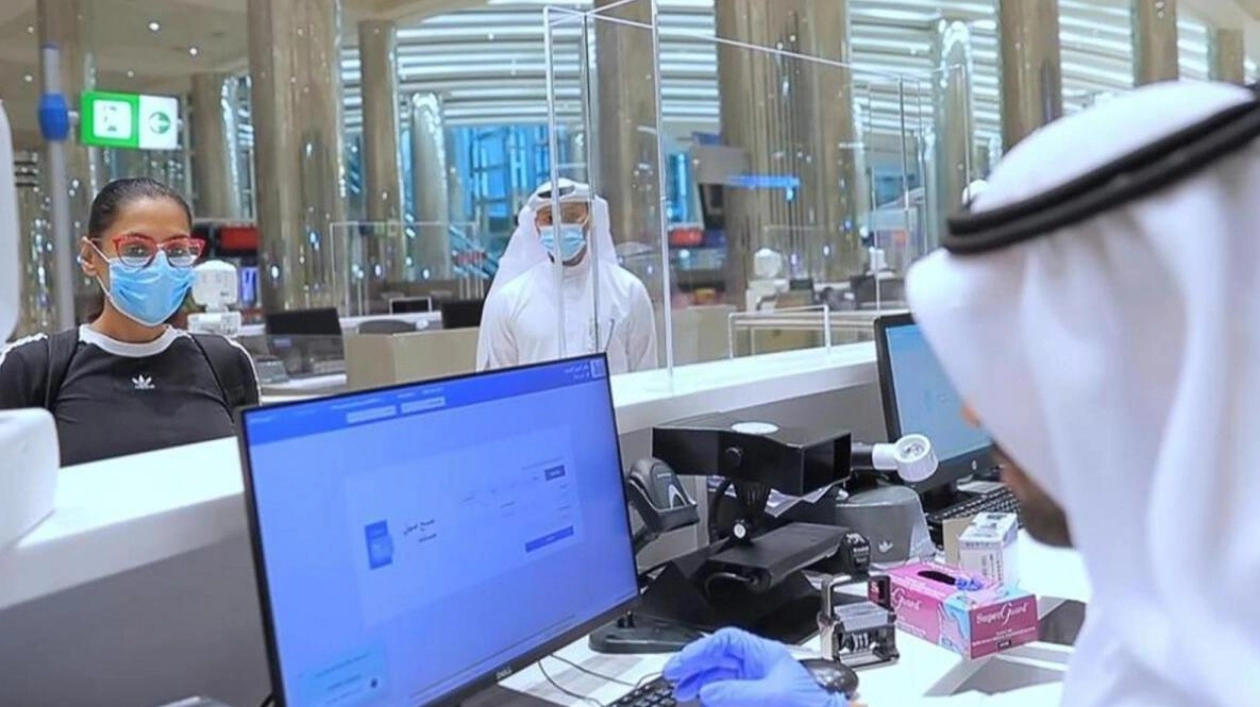For Bangladeshi expatriate Mohammed, the most cherished dream is to return home and reunite with his daughter, whom he has not seen for seven years. The 37-year-old found himself in a precarious situation when the owner of the Sharjah supermarket where he worked fled during the Covid pandemic, leaving the employees in the lurch. "I was awaiting the owner to renew my visa when he disappeared," he recounted. "Since then, I've been taking on odd jobs across Sharjah. Today, my employer informed me about the announced grace period, and I immediately prostrated myself in gratitude to Allah, as I've been anticipating this moment for so long. I deeply miss my daughter and am eager to return home."
On Thursday, UAE authorities declared a two-month grace period for residence visa violators, effective from September 1. This period allows violators to either regularize their status or leave the country without fines. According to UAE laws, overstaying residents are fined Dh50 per day. A call center agent at the Federal Authority for Identity, Citizenship, Customs and Port Security (ICP) clarified that this grace period is exclusively for those who have overstayed their residence visas and does not apply to those with visit visa overstay issues.
Immigration advisors emphasize that residents must leave the country on the day their visa expires, as per the 2020 rules, with no grace period. Ali Saeed Alkaabi, an immigration advisor and member of the Youth Council in Hatta, explained that if a resident loses their job and the company cancels the visa, a one-month grace period is provided for either applying for a new residency visa or leaving the country. Experts also note that fired employees can apply for a permit at the Ministry of Human Resource and Emiratisation (Mohre), valid for six months.
Alkaabi further explained that if an employee does not communicate with the company after losing their job, they can be marked as absconding. For smooth exit procedures, the employee should negotiate with the HR department to remove absconding charges. The employer then issues an application to withdraw these charges, which typically takes about 14 working days. The employee receives a letter from Mohre imposing a travel ban for a year or opting for a normal cancellation. If all charges are cleared, the employee can return home without fines.
Dubai resident Ibrahim Berike, who works as a PRO in the UAE and volunteers for the social group Kerala Muslim Cultural Community (KMCC), sees hundreds of people overstaying their visas monthly. "Some individuals are caught in unfortunate circumstances and find themselves stranded here," he said. "Others are deceived by unscrupulous visa agents. This grace period by the UAE government will aid many stranded individuals."
He cited the case of a family who came to the country, where the husband was embroiled in a legal battle. Someone advised him that having his family present would strengthen his case. However, the case remained unresolved, and the person who brought them was unable to secure proper documentation for the children. His daughter, aged 16, could not receive an education or take her board exams. Many such individuals and families will benefit from this program.
Another individual delighted by the news was 45-year-old M.K., from India, who has been working in Dubai for 12 years but overstayed for two years. "For the past 12 years, the UAE has been my livelihood. Two years ago, after losing my job and being unable to find another, I lacked the funds to return home. I eagerly await the start of the grace period in September. I plan to go home and, if possible, return on a proper work visa," he shared.
AlKaabi stated that people who overstay their residence visas often fear approaching authorities to resolve their issues legally. Violators can regularize their visa status by approaching authorities, paying a fine, and exiting the country, or by obtaining a new residency permit. If a foreigner wishes to continue their stay in the UAE by applying for a new residency permit, they can petition the public prosecutor to reduce the fine amount. The cost of this service is Dh500. After the fine reduction, the person cannot exit the country and must apply for a new residence visa. Failure to do so can result in a lifetime ban on entering the UAE, which can be lifted through a mercy petition to the public prosecutor.
Alkaabi urged residency visa violators to check the exit form for any travel ban after paying the relevant charges. If marked as banned, they can approach the immigration department to remove the ban. The officer at the desk has the authority to lift the ban.






